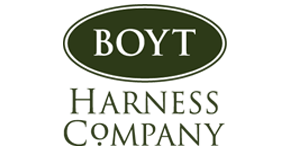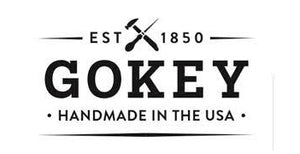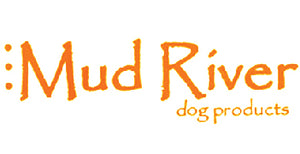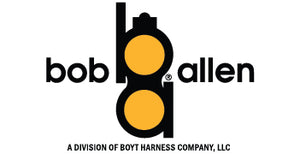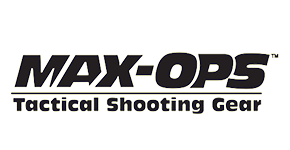While there are few things more important than your hunting dogs, they can also be the most work to properly care for and thank for all their hard work, when hitting the road. We owe it to them to be prepared for any situation that might arise and make their hunting experience the most comfortable as we possibly can.
When you think of your dream bird hunt, rarely do we visualize the mishaps but they do happen. Cuts, blown pads, snake bites and porcupines are just a few of the dangers that can pop up. Being prepared for these situations is the least we can do for our favorite hunting companions.
The first thing I do prior to a hunt is research local vets in the area I will be hunting, especially if it’s an out of state hunt. A quick Google search will tell you the closest vets to that specific area. However, more research is needed after that, to know if it’s the right vet for you and your dog.
The area’s most of us hunt typically revolve around small rural towns, out in the country. Most small town vets don’t have the technology that our big town vets do. Most of the time you will find the majority of their business is with large animals in the Ag department. They may or may not deal with small animals on a regular basis, or even at all. That’s where the research comes in to see what that particular vet specializes in and if they are right for you. The local vet might just be what you want, but may not be someone you’re willing to let take care of your injured dog. If they are not, look at a larger radius for the vet you desire.
Once that is done, I make sure my sleeping arrangements are suitable for my dogs. I personally do not like to leave my dogs in the truck at night. I want them to stay in the room with me. I prefer to find a facility which allows dogs. Make sure there is a place where you can release them in the mornings and evenings before bed. This area should not be too close to the road allowing for safe bathroom breaks. As an ethical rule of thumb, clean up after your dog. Our actions represent other hunters and we need to make sure we do our part to maintain a good image.
Next, make sure you have a good first aid kit in your vehicle at all times. Tape, gauze, antibiotics, stapler, Neosporin, and Rimadyl are a few of the items I have in my first aid kit. Also don’t overlook the importance of having everything you would need in the case your dog tries to make friends with a skunk along the way. Mud River’s Silver Scent Elimination Spray is great to have on hand for many reasons. I would also carry a tub with Dawn soap, hydrogen peroxide, and baking soda. Don’t forget a pair of rubber gloves and some towels you can throw away. It may take a few baths and the use of these products to really get the scent out.
Weather can always be an issue. Depending on where you are going and the time of year, it could be overly hot or extremely cold. I always carry way more water than I need to hydrate and cool my dogs down as needed. Overheating can cause a lot of bad issues and even death to our dogs if they are not properly hydrated and cooled off. A dog must be conditioned to the temperature they will be working in, the best you can. Don’t take a dog from the couch and air conditioning, then try to run them all day in warmer temperatures. That’s a good way to get a dog in a bad spot and can happen quicker than you can expect.
I start working my dogs on wild birds, come August 1st. The temps change quickly this time of year. You will find me sitting in a field, waiting for the first glimpse of light to let my dogs loose. Usually, the temperature is in the 50’s this time of the morning. Within just a couple hours, the thermometer will read in the mid to high 70’s. That’s warm enough to cause dehydration and heat stroke in your dog if not conditioned properly to those temperatures. Always have extra water both in the field and at the truck.
On the flip side I’ve found myself hunting upland birds well below 0. While I don’t feel as threatened for the safety of my dog in cold temperatures as I do warm ones, there’s a peace of mind knowing your dog is warm and out of the cold. I like to have all my dogs ride in the cab of my truck with me, either in their kennel, or just in the back seat. I rely on Mud River seat covers or hammocks when my hunting buddies ride upfront. Mud River has a variety of seat protection products available for whatever vehicle you have.
Duck dogs are a different story than upland dogs. Make sure you have a good way to warm your dog up from freezing cold temperatures and hopefully retrieving birds from the water. While I’m not much of a duck hunter I’ve heard horror stories of dogs getting too cold when hunting.
There are times my dogs are not able to ride in the cab with me and are kenneled in the bed of the truck. I turn to my Mud River kennel covers to protect them from wind, cold temps and wet weather when this happens. I have no worries when using these kennel covers. Even during the warm months I keep the kennel jackets on. It adds an insulated barrier from the sun on the kennels to keep it a little cooler inside the travel kennels. Just make sure the sides are off and the front is rolled up to allow airflow. I like to use the big pocket on top of the kennel jackets to hold my side flaps.
The last thing to cover is feed for your dog. Make sure you have enough food for every day of the trip and a couple more, just in case of an emergency. This is especially true if you use a feed that isn’t readily available. I feel like most of us hunters feed our dogs the best food we can and in the small towns we hunt, they typically don’t have a large variety of high quality foods. What I do is pre package each day’s feed, for each dog, in a zip lock bag. Then I use one of the Mud River Hoss feed bags to hold all the dogs’ food. Hoss bags keep them free of water and dirt on the inside. Typically there is enough room to store my bowls in there too.
As bird hunters our minds take us far and wide and therefore so do our travels. I think for most of us having our dogs there with us is what makes the trip. They work tirelessly for days on end to try and find or retrieve a bird or two for us. The least we can do is make sure they are well taken care of and as comfortable as they can be.


